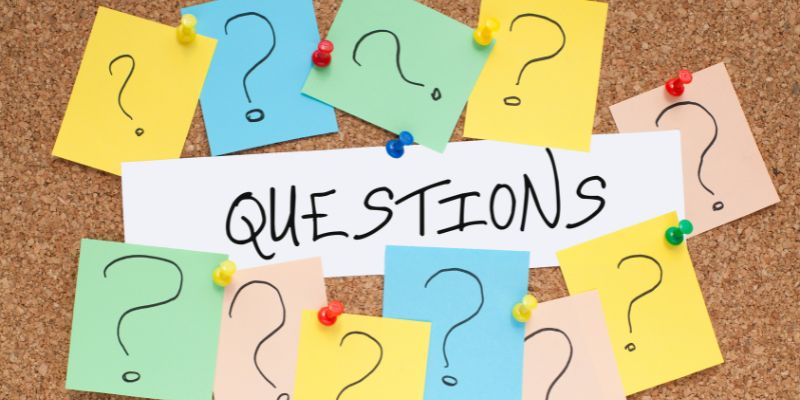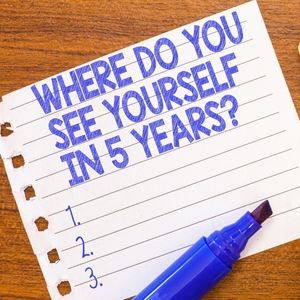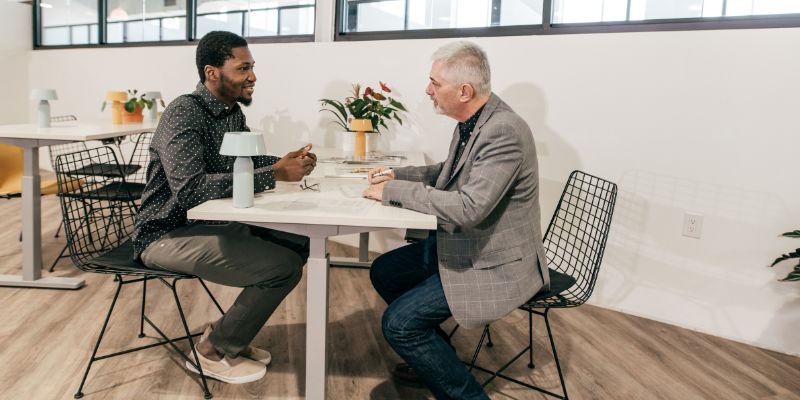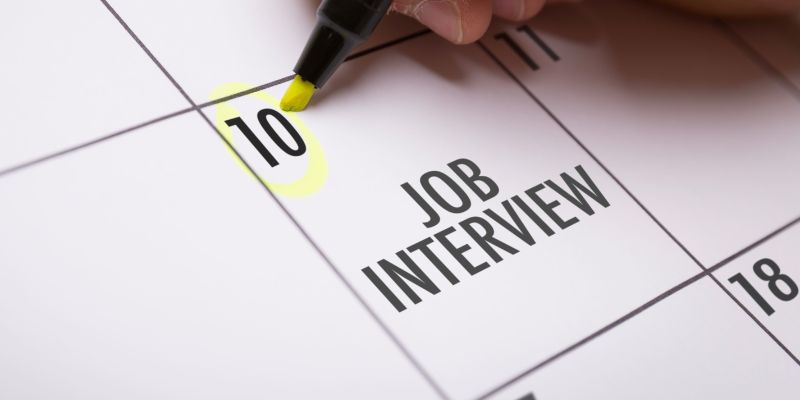You haven’t done an interview in ages and your interview nerves are taking over. You fear walking into the interview room and facing the hiring manager. You are going for your first job. You feel you are the best candidate but want to enhance your communication skills. In this article, I want to share with you essential interview tips, so you can attend your job interview feeling fully prepared, aware of your body language, knowing what competency-based interviews are all about, and feeling prepared so you can answer whatever interview questions come your way.
Interview Preparation

Your cover letter and CV have done their job. Now only the interview lies between you and the role you are after. If you want to ace your interview, preparation is key. The path to interview success, or an invitation to a second interview, starts well before your firm handshake and good eye contact with the hiring manager.
Effective Interview preparation means-
- Knowing in advance what you want the interviewers to know about you.
- Contemplating your answers to common interview questions.
- Gathering relevant information so you have your examples ready to illustrate the competencies listed in the job description.
- Having a strategy for keeping those interview nerves under control.
- Doing proper research on the company, the job title, the industry and maybe even the hiring manager (if you know their name they may be on LinkedIn!)
What people get wrong about job interviews

When I coach clients helping them with their interview preparation, I remind them of three things. Firstly, the interviewers are not trying to catch you out. The purpose of an interview from the company’s perspective is to gather information about you, so the hiring manager can make an informed decision as to whether or not you are the best candidate for the role. Your job is to prepare, hone your skills and give them that information in a professional way.
Secondly, your job is not to try and second guess what you think the interviewers need to hear. Your job is to listen and answer questions as authentically and as naturally as possible. Lastly, you are always doing your best. No one purposefully sets out to do a bad interview. You will give it your best shot, but as the late Maya Angelou said –‘when you know better, you do better.’ The interview tips contained in this article will expand your definition of ‘doing your best.’
Verbal and non-verbal communication
An interview is not a written exam, it’s about good verbal and good nonverbal communication skills, so you are paying attention to not just what you are saying, but how you are saying it and this includes an awareness of your body language.
Common Interview Questions
With a little bit of thought, you can predict many of the interview questions you are likely to be asked. However, it’s never about learning answers by heart. This makes you seem rehearsed, and robotic and makes it difficult for the interviewers to relate to you and determine if you are the best candidate. You also pile a tremendous amount of pressure and stress onto yourself because you are now trying not to forget the interview answers you might have written out.
Interview Questions you are going to be asked

In contemplating your responses to common interview questions, the phrase I like to use is, putting the scaffolding in place for your interview answers. By scaffolding I mean the key points you want to communicate, and the salient remarks you would like the interviewers to note down that show you’ve done good interview preparation.
From my experience in helping candidates prepare for hundreds of interviews, here are common interview questions you are almost guaranteed to be asked.
1. What are your strengths?
By the end of the interview you want the interviewers to know your strengths, but how can they be clear as to what your strengths are if they don’t roll off your tongue? Effective interview preparation starts by knowing your top four or five strengths. Alternative ways of asking the strengths question are – how will you add value to the company? ‘why should we employ you?’ or even the generic ‘tell me a bit about yourself?’ The answer to all these questions lies in knowing your strengths. Your strengths will probably include your past experience, perhaps your leadership style, and how you’ve honed your skills and organisational skills. I like to define strengths as those qualities that make us feel strong on the inside.
2. Why do you want the job?
This is a question interviewers will use to discover your motivations. When answering this common interview question it is best to focus on the future, what you hope to bring to the role and what you hope to gain from working with the company. Complaining about your current or past employer, will not serve you at an interview, focus instead on the future and why you feel the company is a good match for you at this stage in your career.

3. What are your weaknesses?
This interview question is asked because the interviewer wants to know how self-aware you are. The way to approach your answer is to identify an area that you feel is not quite a strength yet and to emphasise how you are working on developing that area.

4. Where do you see yourself in five years’ time?
This is the ambition question. Your answer will let the hiring managers know if you are interested in a job or developing a career. You don’t have to be specific in your answer. You can speak about continuing to learn and grow, overcome challenges, deal with bigger clients, and move into a supervisory or management role.
5. What do you know about this company?
Your answer here tells the interviewer how much interview preparation you have done and how serious you are about getting the job. Knowing the company’s website is the minimum that is expected. Prior to the interview set up a ‘Google Alert’ to assist you in gathering the most up-to-date information about the company. You might also do some research as to what the job title means in the industry if it is not obvious from the job description.
The interview question you are guaranteed to be asked
Do you have any other questions?
This is a sure bet. Don’t ask about salary if it hasn’t been mentioned, but perhaps have a question about the company, as again this lets the interviewer know you have done your homework. You can also you this question to emphasise your enthusiasm for the role, so you leave a positive overall impression.

What questions would you hate to be asked at your next job interview?’
A great question to ask yourself as part of your interview preparation is what question would I hate to be asked, or what issue would I hate the interviewers to bring up? This sheds a light on an area where you may not be as comfortable. If you prepare your answer in advance, it gives you a greater sense of control.
Quick Interview Tips for Banishing those Interview Nerves
Harness those interview nerves
When you begin to feel nervous, don’t try to ignore it, deal with it head on. Say to yourself ‘it’s OK to be nervous because this is important to me.’ Remember without the initial sense of interview nerves there won’t be that adrenaline buzz when the interview is over and you’re saying thank you to the interviewer!
Take a deep breath
When you get nervous your breathing becomes shallower and faster. By doing the opposite, breathing slowly and deeply, you counteract nerves. Slower breathing also means there will be more authority in your voice which boosts your communication skills.
Interview Confidence
Think about two or three people whose confidence you admire. Ask yourself how would they behave in this situation. You may not know exactly, but it is a useful key to accessing your own inner wisdom.
Visualise the interview
Close your eyes and rehearse doing the perfect interview in your mind. Hear yourself speak your interview answers, see yourself walking into the room with positive body language, making good eye contact with the interviewers, giving a firm handshake and showing earnest interest in the interview and the company.
Bonus Tip for Interview Nerves
At an interview, your primary role is to be yourself, the best of yourself. If you try to be someone you are not during the interview process, you will come across as insincere and it will be difficult for the interviewers to relate well to you because you are not relating well to yourself.

Competency-Based interviews
Most interviews today are competency-based interviews. Competency is a skill or attribute that is required to do a job effectively. Companies know the competencies they are seeking in candidates and most of the time the five or six competencies they have identified will be listed in the job description. Common competencies include – Communication, Organisational Skills, Being a Team player, Interpersonal Skills and Leadership Skills.
The 3 ways competencies are assessed during a competency-based interview
A professional story
The most common way interviewers will endeavour to assess competency is by asking you to talk them through a specific example, or a professional story of how you demonstrated that competency in the past. For example, tell me about a time when your leadership skills helped to achieve a specific goal. This approach is based on the thinking that the best indication of future behaviour is past behaviour.
A simple way to identify examples to use to demonstrate competencies is to ask yourself the question – in recent years what have I been most proud of? This question will bring your focus to your recent achievements, where you have probably demonstrated a number of the desired competencies. Have at least two examples of situations where you demonstrated each required competency.
Using the STAR mnemonic
The simple STAR framework ensures we share specific examples and don’t waffle or go off on tangents.
S/T = Situation/ Task
You are setting the scene, giving a brief description of the situation, task or challenge you were facing.
A = Action or Ability demonstrated
You outline what you actually did, and how you approached handling the situation. You are emphasising the skills you displayed. When describing what you did, avoid using broad generalisations or clichés, the more specific you are the better.
R = Result or Resolution
This is where you wrap up your answer by sharing how your actions resolved the situation or completed the task. Sharing what you learned from the specific example is a nice way to conclude your answer, especially when the outcome of the situation wasn’t what you expected.
Hypothetical Situations
Hypothetical scenarios are often used when candidates may not have past experiences to draw upon, for instance, if they are starting out in their careers. They can also be used to test your ability to think on your feet. Hypothetical scenarios can be challenging because they cannot be predicted. If you are able to answer the hypothetical questions satisfactorily, it gives the interviewer confidence that you would be able to manage yourself well in that scenario in the work environment. Hypothetical situations generally tie in with situations you are likely to face on the job.
Speaking about a competency
The third way competency is assessed is when the interviewer asks you to share your understanding of what competency means. For example, what makes a good team player? You don’t need to give a dictionary definition or an academic answer, think about someone who is skilled in that area and what they would do to demonstrate that competency.
Body language and non-verbal communication

Research has shown that we form our impression of someone within seconds of meeting them, often before we have even shaken their hand. This impression is based on non-verbal communication, that is, the person’s appearance and their body language.
Body language is not an exact science, different postures and gestures can mean different things depending on the context. However what follows are some general guidelines, some do’s and don’ts when it comes to body language at a job interview.
Handshake
Sometimes an interview can be over before it even begins. Many interviewers operate on the premise that a weak handshake denotes a weak candidate. Similarly, a bone-crunching handshake can mean overconfidence or someone trying too hard. We only notice handshakes when they are not right. If you are not sure about yours, practice it and ask for feedback.


Facial Expressions During Job Interview
A pleasant expression communicates you are relaxed and friendly. Unfortunately, a nervous expression can easily be confused with a stern, defensive or unfriendly one. As a general rule it is better not to show too much strong emotion during an interview as it can bring your self-control into question. Smile and nod as you normally would during a conversation. Remember an interview is not an interrogation.
Upright posture
When the interviewer offers you a seat, you want to sit upright and a tip to ensure this happens is to keep your lower back against the back of the chair. This also means you are not perched on the edge of the chair which can indicate being tense or uneasy. An upright posture allows us to take some deep breaths which help us feel calmer. Slouching is to be avoided as it gives the impression you are too relaxed, maybe even lacking in enthusiasm or self-esteem. Leaning to one side can be viewed in the same way, or perhaps you are not comfortable in the interview.


Open body language
During most interviews you will be seated at a table, so the lower part of your body may not be as visible. If crossing your legs is comfortable for you make sure they are loosely crossed at the knee. We show interest in what the hiring manager is saying by leaning forward.
Your upper body will be visible, so don’t cross your arms. It might be just your habit, and of course, it is something we instinctively do to protect ourselves, but to the interviewers, it will communicate defensiveness and being uneasy in the interview room.
Visible Hands
A great default position for your hands is to clasp them loosely either in your lap or on the table in front of you. Visible hands denote openness and trustworthiness. Sometimes people do strange things with their hands at interviews; they might sit on them or conceal them between their knees. This conveys anxiousness. If your hands move when you talk, this is just part of who you are and usually is an indicator of energy and enthusiasm.


Eye Contact
Eye contact is essential as it is a key element in creating rapport with the interviewers. Poor eye contact, even if it is a symptom of interview nerves, will make it difficult for the recruiter to relate to you.
Like a handshake, we only notice eye contact when it is not right. During a normal conversation, we will hold eye contact with the other person. Generally, it is the person speaking who will break eye contact for a moment before resuming it. Too much eye contact during the interview and we will come across as challenging or even aggressive. You want your eye contact to be as natural as possible.
Don’t worry about the interviewer’s lack of eye contact
The interviewers will probably take turns asking questions, so as we would do in a normal conversation, the person who asks the question will get most of our eye contact, but we will include the other interviewers in our answers by making intermittent eye contact with them as well.
It can be disconcerting when the interviewer is not looking at us when we are speaking, especially if they are taking notes. Whilst considered rude in a normal conversation, this is just what happens at a job interview.

Final Interview Tips
Whilst it makes sense to contemplate answers to the predictable and common interview questions, we can only control what’s within our control. This includes our interview preparation, getting familiar with the content we would like to include in our interview answers and contemplating examples to illustrate competencies.
Remember what’s not within your control at a job interview
We cannot control the interviewer’s demeanour, their mood or body language. We can only control our own. We cannot predict every question that could be asked at a job interview, but we can be clear as to the valuable information that we wish to communicate to the hiring manager before we leave the room. We can work on boosting our levels of self-confidence before we go for the job interview by hearing ourselves say some of our interview answers aloud, and by practising our examples that will be at the heart of the competency-based interview.
Ultimately we cannot control if we will be offered the job, or called to a second interview, but with quality preparation, we can make it as difficult as possible for the interviewers to overlook us. And remember there will always be the next job interview.


Recent Comments